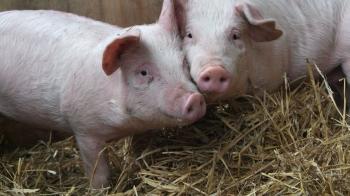Caring for pet pigs
Here's what you need to know about how to look after pet pigs.

What to feed your pigs
You should feed your pigs a balanced diet of commercially prepared pig food that's suitable for their age and breed. You can get this from agricultural merchants.
It's illegal to feed waste food to pigs, including meat, bones, blood, offal or other parts of an animal. You should never feed them used cooking oil or table and kitchen scraps, even if no meat or meat products are prepared in the kitchen.
You'll also need to make sure your pigs have a constant supply of clean, fresh drinking water, and remember to remove ice from their water in winter (never use chemicals to do this).
Remember to clean food and water dispensers and bowls regularly.
Keeping pigs together
Pigs are social herd animals, so you should allow for at least two pigs that get on well to live together.
Pig health and welfare
You'll need to make sure your pigs exercise regularly to avoid obesity and constipation and to stop their feet from becoming overgrown. They'll also need regular checks from a vet to make sure they're in good health. Pet pigs are prone to some specific health problems, including:
- Dry, scaly skin
- Arthritis and lameness, particularly in older animals
- Pot-bellied pigs can suffer from inverted eyelids
Always contact a vet if you're concerned about the health and welfare of your pigs.
Finally, you should get your pigs vaccinated against diseases such as Erysipelas (every six months), Parvovirus, Escherichia coli, Clostridial infection and various parasitic agents, such as mange, lungworm and lice. Contact your vet for further advice on this.
Find out more about keeping pigs by reading our advice on creating the right environment for pet pigs.



